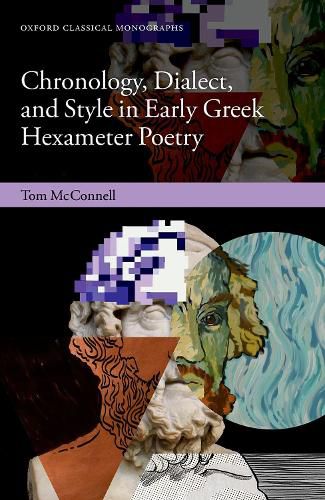Readings Newsletter
Become a Readings Member to make your shopping experience even easier.
Sign in or sign up for free!
You’re not far away from qualifying for FREE standard shipping within Australia
You’ve qualified for FREE standard shipping within Australia
The cart is loading…






Early Greek hexameter poetry and its language is the focus of this book, and McConnell addresses the question of why the Greek in which this poetry is composed is so special and unique in ancient literature. It has long been maintained that various features of the artificial dialect of the poems gradually fell out of use as time went by, and therefore that we can use the poems' language to date the texts. This book takes a deep dive into the linguistic features in question and the wider problems in extrapolating chronology from their distribution, all while advocating for the importance of statistical rigour. Part I contains five chapters which are devoted to different linguistic phenomena, and problems in quantifying them are set out in each. Part II argues that chronology is just one part of a much wider picture, and that not only dialect but also style is a highly salient factor in understanding language variation throughout the poems. This notion of style is linked to the linguistic concept of register, and it is argued that the prehistory of different kinds of poetry led to the creation of different registers for different (sub)genres within the corpus. McConnell therefore takes a linguistic approach to understanding the literary history of early Greek hexameter poetry.
$9.00 standard shipping within Australia
FREE standard shipping within Australia for orders over $100.00
Express & International shipping calculated at checkout
Stock availability can be subject to change without notice. We recommend calling the shop or contacting our online team to check availability of low stock items. Please see our Shopping Online page for more details.
Early Greek hexameter poetry and its language is the focus of this book, and McConnell addresses the question of why the Greek in which this poetry is composed is so special and unique in ancient literature. It has long been maintained that various features of the artificial dialect of the poems gradually fell out of use as time went by, and therefore that we can use the poems' language to date the texts. This book takes a deep dive into the linguistic features in question and the wider problems in extrapolating chronology from their distribution, all while advocating for the importance of statistical rigour. Part I contains five chapters which are devoted to different linguistic phenomena, and problems in quantifying them are set out in each. Part II argues that chronology is just one part of a much wider picture, and that not only dialect but also style is a highly salient factor in understanding language variation throughout the poems. This notion of style is linked to the linguistic concept of register, and it is argued that the prehistory of different kinds of poetry led to the creation of different registers for different (sub)genres within the corpus. McConnell therefore takes a linguistic approach to understanding the literary history of early Greek hexameter poetry.